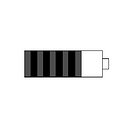Net Metering and the Powerwall
There seems to be some confusion over the economics of the Powerwall with respect to solar.
Right now the Powerwall, when not used for backup, makes electricity more expensive in most states.
Currently solar panel owners can sell electricity back to the grid. That sale of electricity pays back against the capital cost of the solar panel. So long as people can sell the power back, there is no economic incentive (as far as I can see*), for the Powerwall at home because:
- it adds to the capital cost of the solar panels and
- it prevents sales of power into the grid.
Again, if the goal is not economic but stability (UPS) or philosophical (off-grid and grid-minimal interaction) the Powerwall is a good solution.
There is debate on the rules of the net metering system around paying for the bidirectional nature of the power flow. When selling electricity back they often do not have to pay for use of the distribution infrastructure. Arizona made headlines a few years ago by imposing a feed in tariff on this use.
The fee is a bit controversial because the end consumer of electricity is already paying for a delivery charge, so if Mary is effectively paying the utility for delivery and Bob for the supply, why should Bob have to kick in for the delivery charge as well. Further complicating this is that the location of injection of energy into the grid matters and the utilities might argue that there’s a cost above and beyond the delivery charge to handle a feed in.
This backs into the point I made previously. When the cost of distribution begins to overwhelm the cost of generation during peak use periods, there is potential economic gain with a battery in these cases. Until regulatory changes expose consumers to this fluctuation and not just commercial and industrial sectors, the Powerwall has little residential economic benefit if any*. I do not think consumers are clamoring for such exposure; I could be wrong.
But remember! People do not just buy solar and storage for economic benefit, it is a statement as well. If people are spending extra money on energy because they think it’s the “right thing to do”, I can think of far worse ways of self expression.
Once again, if there’s a use case I’ve missed and a residential customer can save money in a 10 year span using the Powerwall in a state with net metering, please do let me know.
*perhaps in the edge case where so much is produced it hits the monthly limit imposed by jurisdiction.

